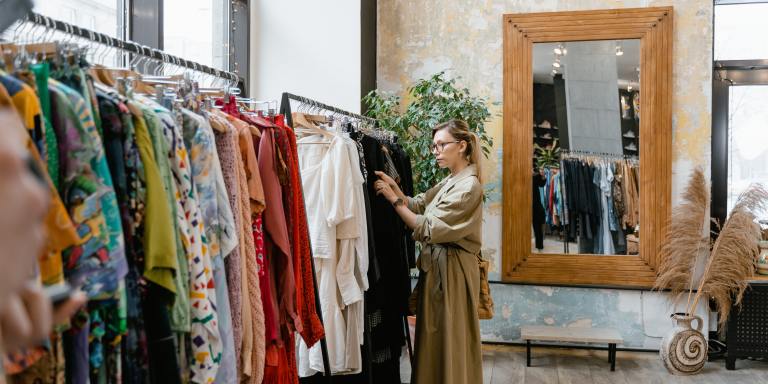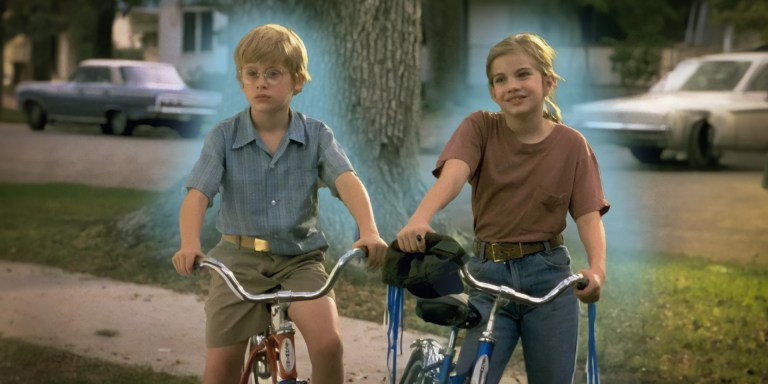
I used to think that I was better than those who simply made a living. I had goals, ambitions, dreams — I couldn’t imagine just coming home after work and watching TV. I saw my parents do this every single day while growing up, and I thought it was the saddest thing I’d ever seen. I vowed never to do just the bare minimum — I would have a career, do what I loved, make my mark on the world and leave something behind so people wouldn’t forget me. What was the point if I just lived and died?
I hear my friends tell me about how they feel disappointed in themselves because they ‘weren’t productive today,’ or ‘aren’t meeting their goals fast enough.’ It’s become evident that society doesn’t measure our worth by how good of a person we are or how much we’re contributing to society, but by how many hours we spend at a conventional job, how far up the ladder we’ve worked and how much money we’re making. CEOs and celebrities are valued over cashiers, artists and volunteers. It’s the same system that my parents grew up with, only now everything is documented on social media and we constantly compare our lives to the lucky few on the internet.
But what they don’t tell you is that this is bullshit. For example, most entrepreneurs you hear about are able-bodied and neuro-typical, coming from supportive families, able to work full time and have some sort of savings or loan going into starting their business. When you’re not able-bodied or neurotypical, and you don’t come from a supportive family, have trouble supporting yourself and have bad credit, it’s going to be that much harder to get your dreams off the ground. It’s pretty privileged to say that everybody can do what they want as long as they work at it.
When I was younger I ran away from home because of abuse. I barely graduated because I had trouble retaining information. Soon I went to university for a degree in communications, where all I wanted was to work for a major magazine and have my work read. But three years into my degree my mental health issues became too much and I dropped out of school to take care of myself. I failed to hold a job and went on welfare, moved around a lot because I couldn’t pay rent and decided to work around my symptoms by starting my own magazine. But constantly worrying about where my next meal would come from or generally not having enough energy from going hungry kept me from being able to give my magazine the full attention it deserved. I burnt out often as I isolated myself from others and neglected my mental health to work on my business instead of taking the time I needed for myself. I wanted to be one of those success stories that made it from ‘welfare to faring well.’ The only thing that got me through those hard years was the hope that if I worked hard enough it would happen.
A year ago I was fortunate to become approved for disability. I finally had enough money to stop being stressed out about my next meal, and I thought I could finally put the time and effort needed to get my magazine off the ground. I realized that it would only grow as fast as I did, so I started looking after my mental health more now that I had a quiet, safe home where I could work from. But all of those years of neglecting myself because of lack of money or struggling with mental illness had taken its toll, and I spent a year just figuring out how to balance every-day things: Eating regular meals, exercising, chores, errands, socializing, work. I struggled with the newfound reality that more money wasn’t going to fix everything — I still had health issues that hindered me from working the conventional way or simply taking care of myself.
The more time went on, the more doubt started to sink in: What if I didn’t have it in me to do the hard work required? What if I didn’t want to put my mental health on the line to try? What if I just wanted to enjoy my life? I had spent years isolated because I was too broke and mentally unwell to leave my apartment that I just wanted to have fun again.
I kept telling myself that I would take a day, a few days, a week to relax — and then I would get back to work. But as my depression lifted, I wanted to go out more instead of work. I went to see live music, went out dancing, made new friends and remembered what it was like to be happy. I would come home elated, only to turn towards guilt — because I was getting better mentally, but wasn’t achieving my goals. I felt lost in one world and better than ever in another. It wasn’t that I didn’t wanted to work on my magazine anymore — but it stopped being the only thing I was living for. I didn’t want to sacrifice my eating habits, my mental health and my social life as I tried to balance everything.
And then I became the person I was always terrified of becoming: Unproductive.
I had been idealistic and optimistic all my life — thinking that if I just tried hard enough like society had told me to that things would happen for me. But just like getting a degree, keeping a job and balancing every-day activities, getting my magazine off the ground wasn’t as simple as simply trying hard enough. Because of my mental health, I had to take more time for myself, and that forced me to live in non-traditional ways — on social assistance, learning how to reduce stress in my life, prioritizing diet and exercise over everything else. I thought that I could run my magazine the same way — on my own terms, on my own schedule — but I wanted to find investors, get it in print and pay people, and just doing the bare minimum was sometimes too much for me. How was I going to run a mainstream magazine when I couldn’t even keep a job or get out of bed some days?
I was finally seeing that the world wasn’t the place that society had told me it was. The game was rigged. Was sacrificing everything just to win worth it? Was that the only way to play?
This got me thinking — those entrepreneurs who we see as success stories, what do they have to sacrifice in order to succeed? Often we hear that in order to run a business you need to dedicate all of your time to your work. And often this comes at the cost of something, like your health or your dating life. We see it in celebrities who go to rehab for exhaustion, or men who get sugar babies because they don’t have time for real relationships. I’m not saying all entrepreneurs are unhappy, and some balance their life and work well — but for those of us who struggle with disabilities, mental health or physical health issues, things are even harder.
Using productivity as a way to measure our worth works to keep the capitalist cog turning — but it’s dangerous in the way that photo shop on magazines change our view of how we should be. It gives us an unrealistic expectation that there are no limits to productivity — just laziness. And when our bodies give out in various forms of burnout such as extreme fatigue or anxiety attacks, we feel like it’s our fault, that we’re just not trying hard enough, that we’re lazy. But what if our worth was measured by something other than productivity? What if it was based on simply being alive?
What if we didn’t have to work our way up the ladder or get more likes on social media or have the newest product advertised? What if we just did what made us happy and were content with that — whether working part time at a grocery store or working hard at university to become a lawyer? Why is our pleasure not enough? It’s time to re-define success. Money or fame aren’t the only things that makes people fulfilled.
For me, my magazine makes me fulfilled. Going out with friends makes me fulfilled. I don’t need to prove that I’m successful by finding an investor and printing the magazine and paying people — although all of that would be great and I’m still going to work towards it. People ask me why I can’t afford to pay, and besides the fact that getting a magazine off the ground is extremely difficult, I often blame myself for not working hard enough, just like I feel guilty for relaxing. People will judge you based on where you are in life because that’s the system they grew up in — but nobody else is living your life but you. Nobody else gets to tell you what success is to you. Learning that takes time, but it’s one of the best things you can do for yourself.
I’m successful because I’m doing the best I can. Because I exercise and eat well and do chores even when I’m having a bad mental health day — and because I know when to throw everything to the side to just stay in bed. It’s not because I’m financially stable or doing what I love or happy with my life — because all of those things can disappear. Success shouldn’t be measured on circumstance. If you have depression, have to work a job you dislike or are broke there’s nothing wrong with you and you’re still successful. And while it’s easy to look for outside approval to base your self worth on, doing that is always going to leave you unfulfilled because self-worth comes from within.
Having financial freedom has taught me that money doesn’t equal happiness — it sure helps take the stress off, but once the rent and bills are paid I’m just left with me. For myself, success is learning to be comfortable with who I am, my obstacles and limits. It’s being understanding of what I can and can’t do each day. Recognizing this doesn’t mean I should shame myself for not being the person I want to be — it means changing the way I see myself. I’m not weak or lazy because I can’t work on what I love 24/7 — I’m human, my limits are different than everyone elses, and I’m worth more than my productivity. ![]()





